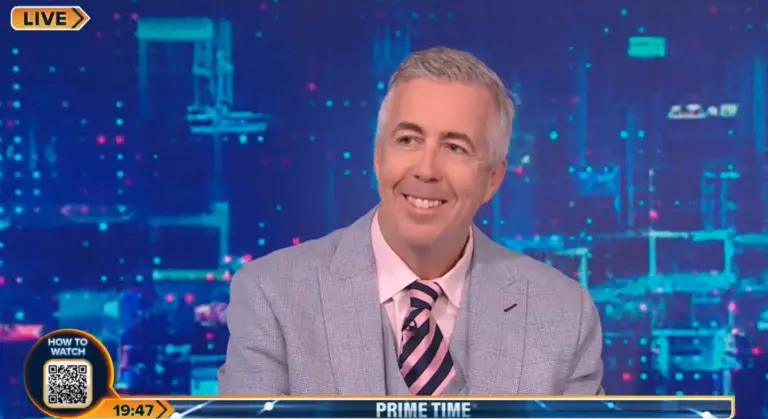With party conference season starting this weekend in a format we have never experienced before, PLMR’s Dan Baynes analyses the state of the Labour Party and looks ahead to some of the events to keep an eye on at “Labour Connected”.
The first in a series of online conferences, Labour Connected should be a helpful indicator of the party’s priorities going forward, but it remains to be seen whether the online format will have any sort of the same impact as the usual gathering of the Shadow Cabinet, party faithful and media circus.
In his fifth month as leader, Keir Starmer will seek to use the opportunity to put his stamp on the party and build his public profile. This is crucial in the context of the numerous 2021 mayoral and local elections which will involve voters from across the UK and are a crucial test for Labour on the road to 2024.
The Leader of the Opposition’s Office has been keen to portray Starmer as a “helpful critic” on the Government’s handling of Coronavirus, whilst appearing reflective of why the “red wall” constituencies across the North and Midlands deserted their traditional support for Labour at the last election. Starmer’s silence on certain “culture war” issues has been a notable part of this strategy.
Labour must win 124 seats in order to achieve a majority, which will require victories in Conservative held seats e.g. Stevenage. The party’s key message from Connected will be to prove to the public that Labour can be taken seriously once again as a force that can govern Britain for the better. Therefore, a key question as we look ahead to Sunday is whether Connected will mean that we finally see some clear policies from Labour, which have been somewhat scarce under Starmer’s leadership so far.
Connected is a vital opportunity for the Labour leadership to set out their priorities and move away from the tactic of reactive, rather than proactive, policymaking. The 10 policy panels cover key areas like health and social care; a post-Covid and green recovery; communities and race inequality. These are all rightly areas of focus for the party as we begin to consider the country’s future emerging from the Covid-19 crisis. Labour must seize this opportunity to produce a concrete platform of tangible proposals rather than platitudes and generalised messaging.
If such policies do come to the fore, an important test will be if they have the same impact as they would at in-person party conferences. It is hard to imagine how Connected, and indeed other parties’ virtual conferences, will galvanise members and the wider public in a way that we are used to. Online speeches do not have the same gravitas as those in person, and whilst it may allow for a more prepared and polished operation, there may well be a sense of energy lacking. Not least because members will no longer be looking forward to, or indeed returning from, a trip to the hotel bar this year. The social side of conference and the vigour it brings to the event cannot be underestimated.
In addition, the media has been noticeably quiet around Labour Connected, a far cry from the usual flurry of conference season stories and hype. Whilst stories will come out of Connected as the programme begins, these will not have an impact anything like footage of a keynote speech to a hall full of people. The big-ticket speeches, from the likes of Anneliese Dodds and Keir Starmer, will be broadcast to the public, but the silence in the media indicates that the general public outside of the Labour membership are not as interested as the party would hope.
Nevertheless, there are ways to make Connected a success, and an example for the other upcoming virtual conferences. The success of conference now relies not on the spectacle, but the substance of policy and messaging coming from the Labour leadership. Labour should use Connected to put across eye-catching and impactful policies with a real alternative vision of the UK’s emergence from this crisis. If not, the public could well become disconnected, and the first virtual party conference could fall flat.
Events to watch out for:
- Sunday 20th 11am – Speech by Angela Rayner: off the back of her debut PMQs performance, Labour’s Deputy Leader will have the first keynote – expect her to whip up the base and attack Boris Johnson head on in a way Starmer will avoid.
- Monday 21st 11am – Speech by Anneliese Dodds: in the context of furlough winding down and rumours of tightened national restrictions, eyes will be on the Shadow Chancellor to see how much Labour will set out an alternative economic approach to the crisis.
- Monday 21st 1pm – PLMR’s Senior Digital Executive, Abby Tomlinson is appearing on a Labour Europe/Labour Business event on digital campaigning.
- Monday 21st 4pm – Speech by Nick Thomas-Symonds: changing perceptions on Labour’s approach to law and order will be a core part of their new strategy, expect the Shadow Home Secretary to address this.
- Tuesday 22nd 11am – Speech by Sir Keir Starmer: The big set piece speech by the Labour leader, which will be delivered in front of journalists & broadcast to the public. His first conference speech, will Starmer announce landmark policies to further distinguish his leadership from the Corbyn era?
- Tuesday 22nd 3pm – The Global Response to Covid: Shadow Foreign Secretary, Lisa Nandy is joined by former Prime Minister Gordon Brown and Prime Minister of New Zealand, Jacinda Ardern.
You can view the full agenda here.
There is also a virtual expo, around 100 “fringe” events and a business forum taking place daily.





